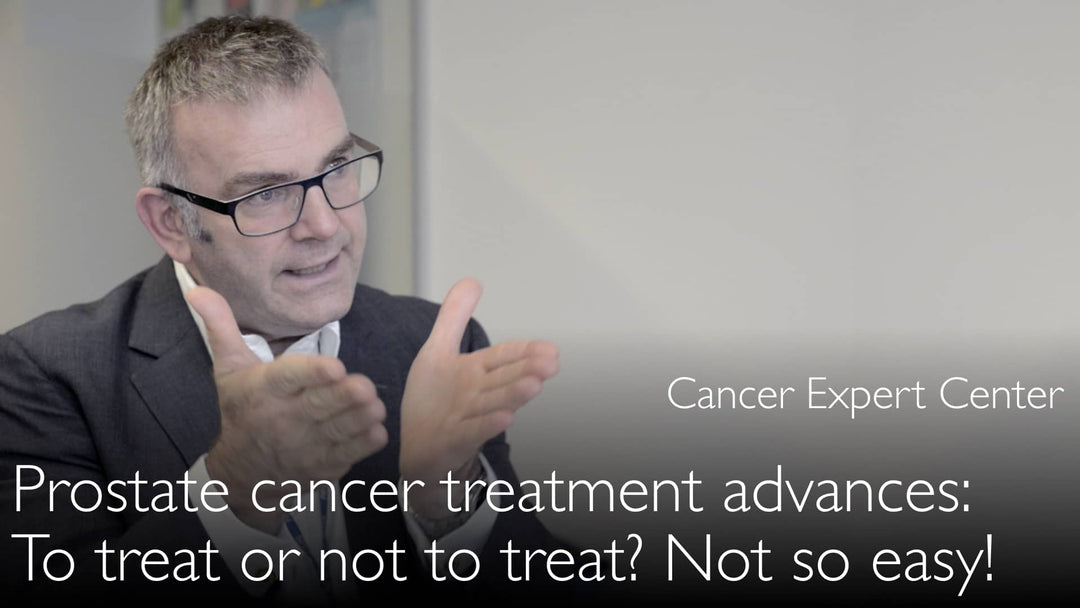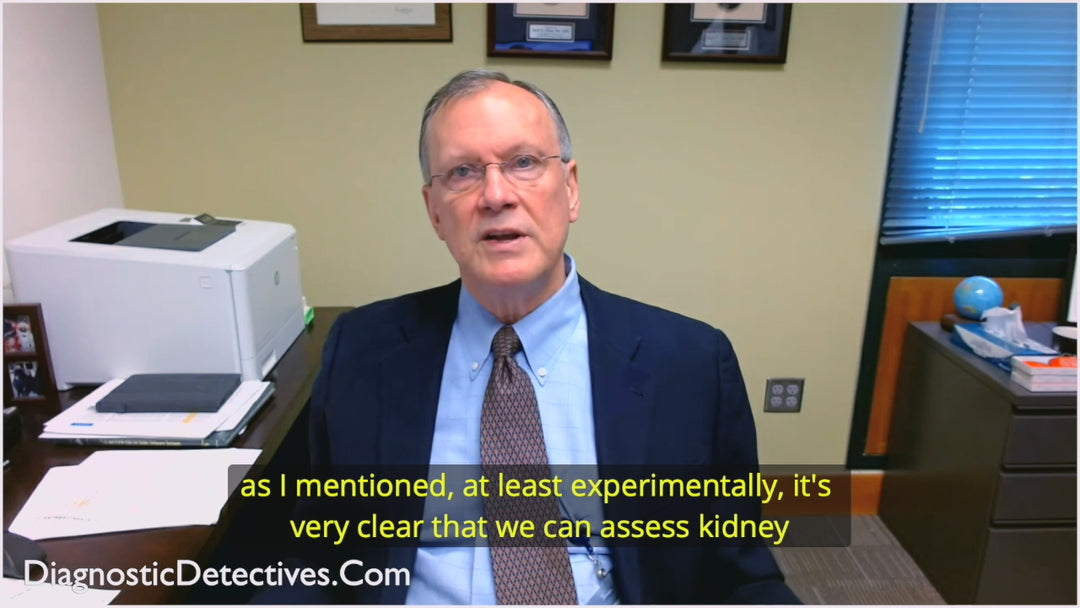Leading expert in urology and prostate cancer, Dr. Mark Emberton, MD, explains the distinct treatment pathways for localized and metastatic prostate cancer, detailing the revolutionary shift to early chemotherapy and novel hormone therapies for advanced disease and outlining the curable nature of cancer confined to the prostate.
Modern Prostate Cancer Treatment: Localized vs. Metastatic Therapy Options
Jump To Section
- Localized vs. Metastatic Prostate Cancer Treatment Goals
- Systemic Therapy Revolution for Advanced Prostate Cancer
- Advances in Hormone Treatment for Prostate Cancer
- The Future of Immunotherapy in Prostate Cancer
- Determining the Optimal Treatment Sequence
- Curable Options for Localized Prostate Cancer
Localized vs. Metastatic Prostate Cancer Treatment Goals
Prostate cancer treatment strategies are fundamentally split based on the disease stage. Dr. Mark Emberton, MD, clarifies that when cancer is confined to the prostate gland, the primary goal is cure. This involves localized treatments targeting the prostate itself. Once prostate cancer has metastasized, or spread beyond the prostate, the treatment approach must become systemic to address cancer cells throughout the body.
Systemic Therapy Revolution for Advanced Prostate Cancer
The management of metastatic prostate cancer has undergone a dramatic transformation. Dr. Mark Emberton, MD, contrasts historical practices with modern standards. Previously, chemotherapy was reserved for end-of-life symptom control. The revolutionary advance is that chemotherapy is now used much earlier in the disease course to actively prolong life. Recent clinical data confirms that this early intervention can add years to a patient's survival.
Advances in Hormone Treatment for Prostate Cancer
Androgen deprivation therapy, or hormone treatment, remains a cornerstone for systemic prostate cancer control. Dr. Mark Emberton, MD, notes a significant expansion in options. The field has moved beyond the single method of surgical castration (orchidectomy) that was once standard. Today, patients have access to a variety of new hormone treatments available in both tablet and injection forms, offering more flexibility and potentially fewer side effects.
The Future of Immunotherapy in Prostate Cancer
The treatment arsenal for advanced prostate cancer continues to grow with cutting-edge developments. Dr. Mark Emberton, MD, highlights promising new therapies in development, particularly immune checkpoint inhibitors. These immunotherapies work by harnessing the body's own immune system to fight cancer cells and are expected to be integrated into the standard prostate cancer therapy armamentarium, offering new hope for patients.
Determining the Optimal Treatment Sequence
With multiple effective options available, a key clinical question has emerged. For metastatic prostate cancer, the discussion is no longer about if a treatment works, but about the optimal sequence of therapy. Dr. Emberton identifies this as a primary research focus: determining how new biological therapies work in combination or in sequence with existing chemical-type prostate cancer therapies to maximize patient benefit.
Curable Options for Localized Prostate Cancer
The conversation with Dr. Anton Titov, MD, underscores that a diagnosis of prostate cancer confined to the organ is highly treatable. For localized disease, the curative approach involves definitive local treatments. As Dr. Mark Emberton, MD, indicates, this typically involves a discussion between the pros and cons of primary treatment modalities like radiotherapy and surgery, which are designed to eradicate the cancer within the prostate.
Full Transcript
Dr. Anton Titov, MD: Latest prostate cancer treatments differ for localized or metastatic prostate cancer. A leading expert discusses prostate cancer treatments, pros and cons of radiotherapy and surgery in prostate cancer.
There are many prostate cancer treatment options today. Could you discuss recent advances in prostate cancer treatment? Maybe there are some prostate cancer methods that have not yet entered wider clinical practice. New prostate cancer therapy methods that are going to enter clinical practice soon.
Dr. Mark Emberton, MD: I think prostate cancer treatments can be split into two main types. Prostate cancer is curable when the cancer is confined to the prostate. Cure is the approach to localized prostate cancer.
We've been talking about this in terms of prostate cancer diagnosis. Once prostate cancer has escaped beyond the prostate, then we need to treat the whole body. We call this "systemic cancer treatments." Because we assume, probably correctly, that the cancer in microscopic form would have spread throughout the body.
I will just talk about systemic prostate cancer therapy so that we can finish that. Then I will talk about localized prostate cancer.
Systemic prostate cancer therapy typically has been with hormones. When I was training, we used to remove the testicles in a man, and that was it. Prostate cancer chemotherapy was given very rarely.
Chemotherapy was given to control symptoms towards the end of life. The big revolution in my working time has been that prostate cancer chemotherapy is now used to prolong life.
Recent data shows that if you give chemotherapy much earlier than we thought, you can actually add years of life.
There are many new types of prostate cancer hormone treatment available that can be given in tablet and injection form. Before we only had one method.
For patients who have been diagnosed with prostate cancer that has spread beyond the prostate, the future looks very bright indeed. There are lots of new cancer therapy methods.
Lots of new therapies are in development. Immune checkpoint inhibitors are immunotherapies that are all going to be added to the current armamentarium of prostate cancer therapy.
Dr. Anton Titov, MD: So that's advanced prostate cancer that has spread. That's fairly simple, because we have one approach to that prostate cancer.
The discussion is really about what is the optimal sequence of cancer therapy. That's the research question, if you like. How these new prostate cancer therapies that are biological work with existing chemical-type prostate cancer therapies.







